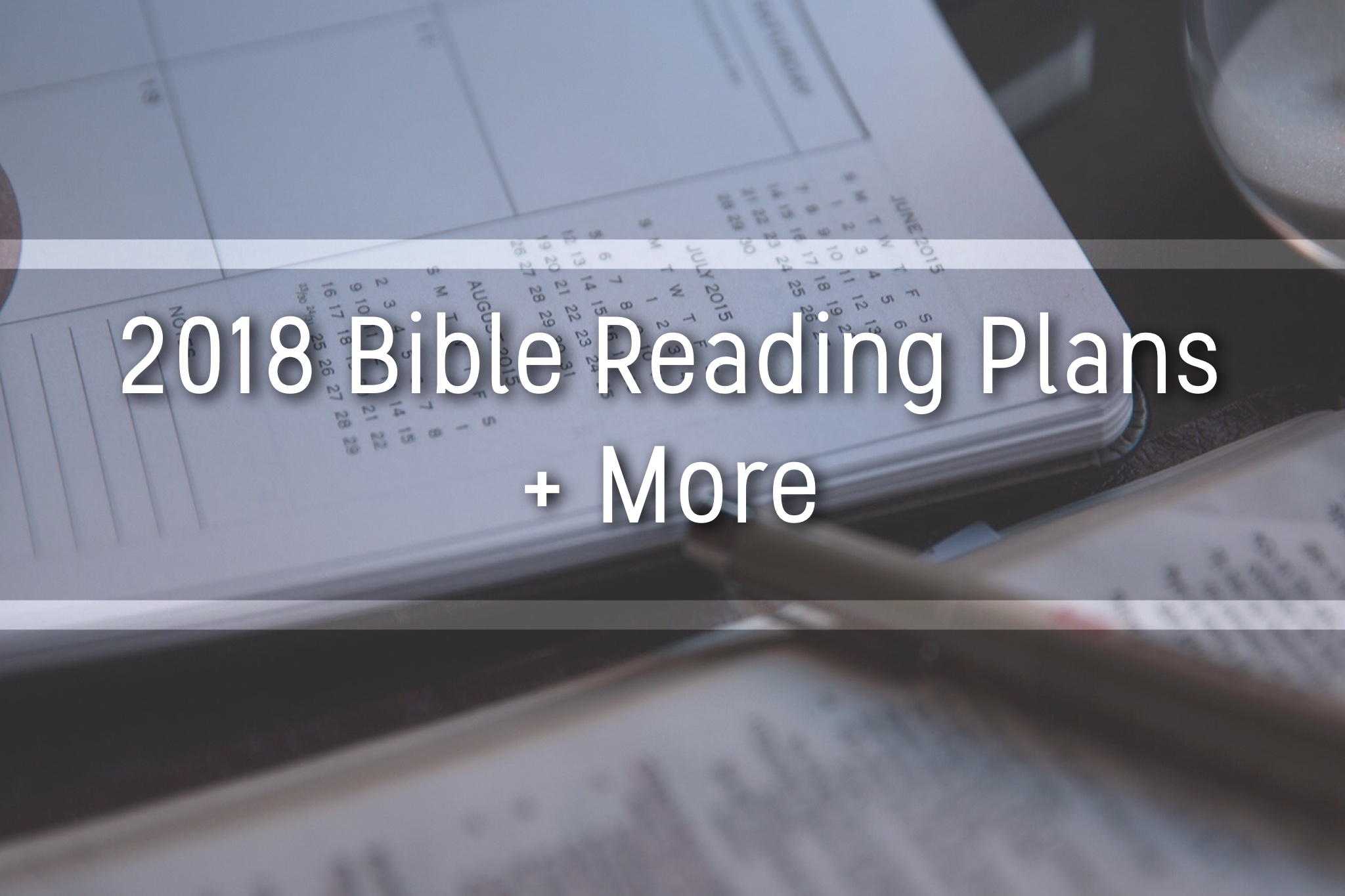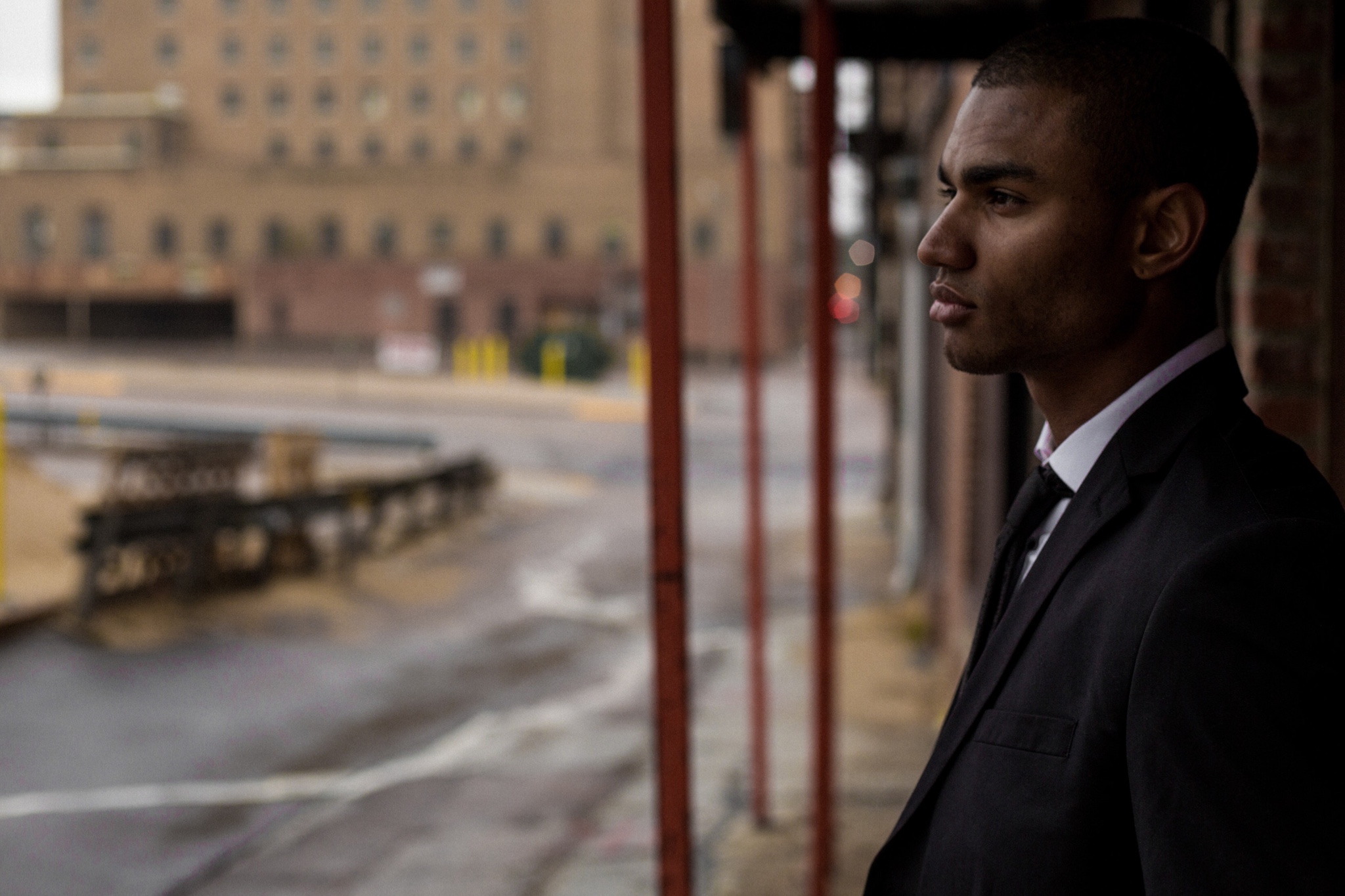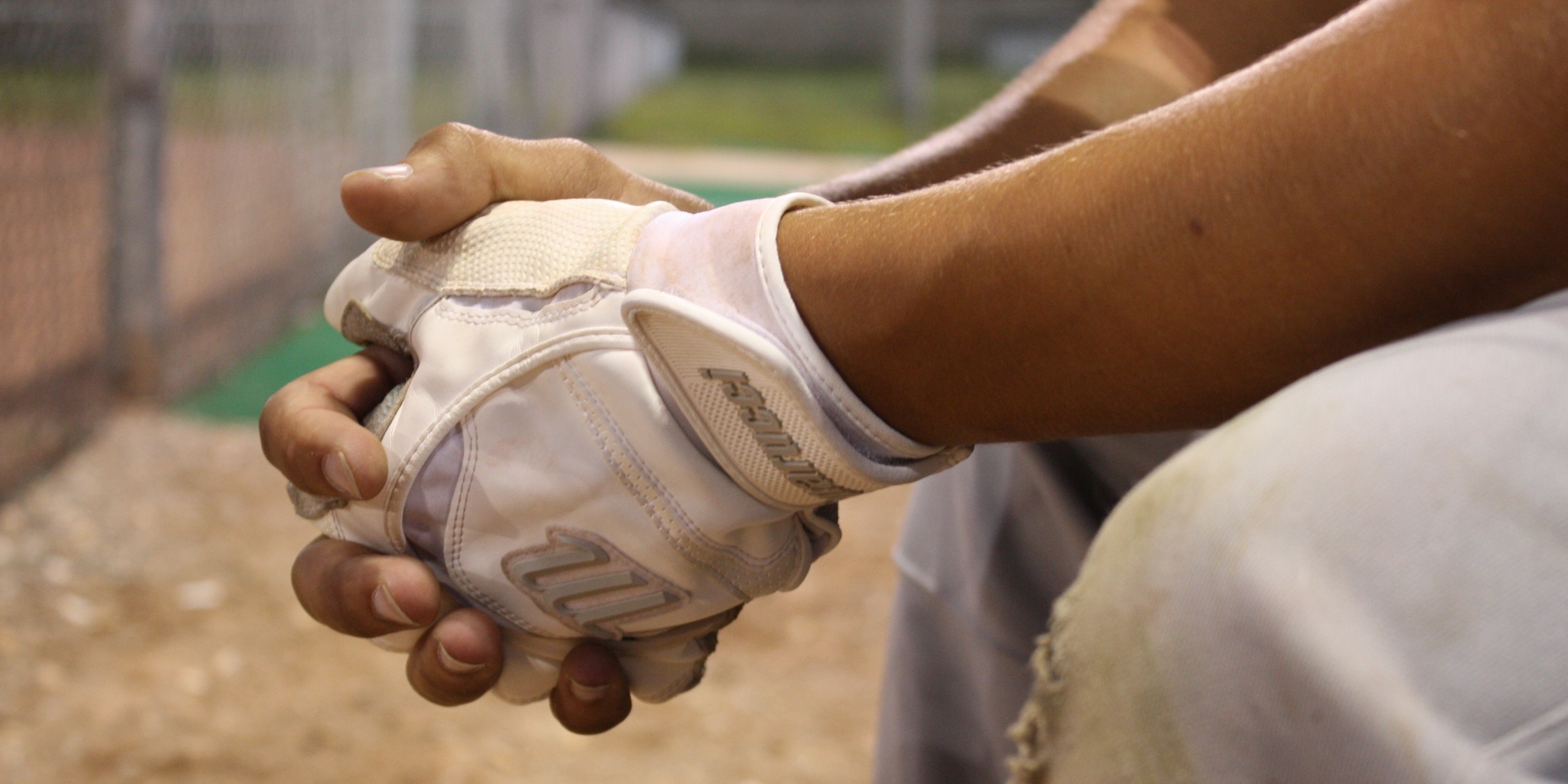
In her book Cut, author Patrica McCormick tells the fictional yet hauntingly real story of Callie, a girl who has been put in a residential treatment facility because of her struggle with cutting herself. Throughout the book, Callie proves to be a master at appearing invulnerable. When pressed with questions by her counselor, she remains silent. During group therapy, she keeps her body language as still as possible so she isn’t called on to share. If things get really bad, she runs away. Deep down she knows she has a problem, but addressing it would require exposing her true self and that is a risk she is unwilling to take. It isn’t until the last page that Callie is finally able to vocally admit her problem as well as her desire to get better.
Many of us know this paradox well: something deep inside of us yearns for authentic and real relationships, but the risk of exposing ourselves is too much for us to handle. We become experts at defense mechanisms and dodging the tough questions, all the while suppressing our hearts desire to be truly and intimately known by others. Why is it that we so often fail to open ourselves up to another, to entrust our truest selves to someone else? I think the answer comes down to one simple four-letter word: fear.
The Fear of Being Known
We know at a propositional level that community and deeper relationships are for our good. We even recognize on an emotional level that our souls desire to be known and loved by others. And yet, such relationships require a level of commitment and accountability which scares us. The fear of being known for the first time feels like an exposed nerve just waiting to be damaged. Such a fear can seize, paralyze and ultimately prevent us from giving ourselves to others as God intended.
When I first became a Christian, one of the things that surprised me most was just how open and honest older men in the faith were. I had never needed to open myself up to others, and I had deceived myself in to thinking I was impenetrable. However, there was something captivating and attractive about men who could expose their genuine selves to other men and actually be loved more for it. As soon as I recognized what they had, I knew it was something I desperately needed. I had to make the conscious choice to stop living out of the fear which had previously taken control of me.
The Fear of Being Known…Again
You may have read the above section with a sick kind of knot forming in your stomach. The reason for this is because you know all to well the stakes involved in exposing yourself to others in vulnerable community. At some point in the past, you’ve entrusted your heart to another – and now you feel as if you’ve paid the price. The central nerves to your soul were revealed and the result was that they were damaged by some kind of relational sandpaper, stripping you of any desire to ever expose yourself again.
I was about kindergarten age when I had my first memorable experience with really bad food poisoning. The culprit? A grilled cheese sandwich from my daycare. This delicious morsel which had been created for my good and my joy betrayed me. I was dumbfounded as to how something that could be so good could hurt so bad! Even at that age, I knew I had simply had a bad experience with one particular sandwich and that not all grilled cheeses would give me food poisoning. Yet I couldn’t get over it for years – so long in fact that I was an adult before I ate that cheesy goodness again.
I think there are a lot of us who have had a “grilled cheese experience” with Christian community. We took the first step out of faith and obedience and gave our hearts over to others, and we were tragically wounded by someone close to us. We know all to well that those nearest to us have the potential to hurt us the most. In order to try and protect ourselves from ever being heartbroken again, we return to living out of fear; this fear when it has conceived gives birth to bitterness, and bitterness when it is fully grown brings forth a kind of deadly cynicism which can feel impossible to crack.
What hope is there for those of us who are plagued by fear? What are we to do about our paralyzing cynicism? How can we ever get to a place where we are willing to embrace vulnerability in community?
The Fear-Conquering Hero
Cut tells the story of a helpless child whose physical struggles point to a weightier spiritual struggle: the fear of being rejected if others find out who she really is. Our own stories all look different, but we play a similar role. Like Callie, we too fear what will happen if others find out just how much of a fraud we really are. The good news is that there’s a Hero who rescues us out of our own bleak stories and bring us in to His.
Christ knew exactly what awaited him in his incarnation. The stakes of revealing himself to the world were high; the stakes in remaining hidden were even higher. In these last days, God made himself fully known through his Son (Heb. 1:2). He became one of us and fully exposed the height and depth of his heart for us. But the fear of being fully known by God was just too much; our defense mechanisms kicked in – so we killed Him.
Our Savior knows what’s at stake in exposing and giving our hearts to others in community, but he did not allow fear to consume him. He took the first step and engaged us in an intimate and loving fellowship, no matter what the cost was to himself.
Jesus knows what it means to be wounded by those closest to him: Peter made promises he couldn’t keep (Matt. 26:34), his three closest friends couldn’t protect him in his hour of need (Matt 26:40), Judas betrayed him (Matt 26:49), and when it was all said and done his only company was that of two robbers who were crucified with him (Matt 27:44). When our closest friends in community wound us, we identify with Christ probably more than we realize.
Despite all of this, he now lives forever to give all of himself to those who trust him in faith. We know that he sees our truest selves – and loves us still. Others might reject us, but we know we are accepted by Him. If he has conquered fear, how then can we continue to live in it any longer? Let’s respond to Christ’s sacrifice by giving ourselves to one another in faith and love. What we will find is that as we grow in our relationships with others, we will grow in the understanding of our relationship with the Lover of our souls.
 The first chapter of Paul’s letter to the Romans (specifically Romans 1:18-32) are familiar to most Christians. This opening argument in Paul’s discourse is one that sticks out in our heads particularly because of the way it confronts our very idea of what it means to be a created being living under the rule of our holy Creator. Our most basic conceptions of authority, morality, the human condition and idolatry are all deeply challenged in these few verses. What makes this section of Paul’s letter especially biting is that the longer we meditate on it, the deeper it cuts to the heart of the problem: it is our very heart that is the problem.
The first chapter of Paul’s letter to the Romans (specifically Romans 1:18-32) are familiar to most Christians. This opening argument in Paul’s discourse is one that sticks out in our heads particularly because of the way it confronts our very idea of what it means to be a created being living under the rule of our holy Creator. Our most basic conceptions of authority, morality, the human condition and idolatry are all deeply challenged in these few verses. What makes this section of Paul’s letter especially biting is that the longer we meditate on it, the deeper it cuts to the heart of the problem: it is our very heart that is the problem.
The thrust of Paul’s argument in this opening section to his letter is simple: God is creator and he alone is worthy to be worshipped and praised, but we humans turn created things into objects to be worshipped. We all know better – for the entire cosmos cries out to the power and glory of our Creator – but we cannot help but go our own way and chase our own idols.
What idols are you chasing? Power? Money? An Instagram-perfect marriage? Reputation? The Romans 1 reality is that the longer we search ourselves, the more idols we will find. Often it is those we suspect less that have the deepest grips on our hearts.
I have come to the realization that for the last several years I have chased the idol of the ideal: the ideal income, the ideal house, the ideal work-life balance. My most selfishly and deviously disguised idol has been that of the ideal church; the place that would run exactly as I think it should, where everyone would believe exactly what I believe, and where everything would go exactly as I think it should.
Most Christians chase the idol of the ideal church to one extent or another. When we begin to feel unfulfilled by a church community, when conflicts begin to arise, or when we simply don’t like the music – we all feel that question arise from deep within us: “So I guess I should leave?”
However, I think this temptation might actually be more severe for those who have committed to a life in vocational ministry. I think the reason is pretty obvious. Many of us spend countless hours in classes and reading books on church leadership and government. We develop strong opinions about how things should go when we hear lessons from mentors we look up to. And so, as we chase our idols of the ideal, we mask it with “holy” words like polity or philosophy of ministry. We develop abstract arguments and tell ourselves that if a church’s elder meetings don’t look exactly like the Jerusalem Council, then it must not be a very good church. Oh, how we claim to be wise but instead reveal ourselves to be fools (Romans 1:22).
I know how to mask my idol of the ideal church well – in fact, I think I’ve become quite the expert at it. Having served in three churches now which all fall on a very wide spectrum, I’ve seen the strength’s and weaknesses of multiple approaches to ministry. With a critical eye I look at other churches and think, “Fools. If only they did it this way, all their problems would go away. If only they had a better system, nobody would have gotten hurt.”
As I’ve been on my perpetual chase for the idol of the ideal, I’ve pursued the perfect system. The system where everything in the church goes smoothly and perfectly. The place where nobody would be able to hurt or wound someone else because the system would protect them. The church where every sermon would be completely and perfectly doctrinally sound because the confessions and catechisms would make it so. In other words, the system where knowledge rids a church of its sin and weaknesses.
However, the truth is that knowledge is not our problem. Knowledge can no sooner rid someone of her sin as it can rid a church of sinners. Knowledge cannot produce change at the deepest fibers of someone’s being; knowledge cannot restore a broken heart; knowledge cannot bring dead people back to life.
Only love can do that.
So we find that our never-ending chase for our idol of the ideal only ends in death. Death to ourselves, and the death of Another who gave himself up in love.
I must confess that this idol runs far deeper than I yet know. But here is what I do know: systems won’t fix sinners, and systems won’t fix churches. Only love can do that; a kind of love which is only found in a Shepherd who gave up his life to serve the people whom he loves and restore their affections for their Creator (Mark 10:45).
What does that mean for me? It means it is time to forsake my chase for the ideal. It is time to pray for an increasing desire to serve a broken, messed up, and deeply flawed church; where I can seek to model Christ’s love for them as I come to understand better his love for a broken, messed up, and deeply flawed sinner like me.
Like its 2013 predecessor, Batman v Superman: Dawn of Justice is full of Christian/religious undertones and themes. Throughout the film, we see shots of characters praying, language surrounding angels and demons, and Superman being consistently portrayed as a savior figure. Even the classic epicurean problem of evil plays a role in the movie’s dialogue.
One of the most frequent themes in the movie is this question of who exactly Superman is. Is he a god? Is he a man? Is he somehow both? Is he the savior of humanity that people have been waiting on? This shouldn’t come as a surprise to the audience, because we even see this theme in the trailers for the film. In one scene of the film (from the trailer), we see Lex Luthor exclaim, “If man won’t kill God, the devil will do it!” In describing the battle between Superman and Batman, Lex again says, “The greatest gladiator match in the history of the world. God versus man. Day versus night!” Yet at the same time, we know there are references to Superman’s humanity. In another scene from the film (also from the trailer), we see Batman looking to Superman and asking the question, “Tell me, do you bleed? You will.” While Lex is fascinated by the apparent divinity in Superman, Batman is driven by finding Superman’s human weaknesses, and overall is a great movie to watch, as I watch it in a great TV with a tv mount full motion to enjoy it even more.
This question over Superman’s identity echoes a familiar debate from church history. In AD 318, a man named Arius began teaching that Jesus was not God at all, but that he was merely some sort of heavenly servant of the true God. The one Most High God was the only almighty and transcendent God, Jesus was merely a created servant. Arius in particular wrestled with how Jesus could be divine if he exhibited emotion, grew and learned, and ultimately died. He thought his teachings had precedent within the church, for in the prior century Origen had been teaching that the Father was due glory and praise that the Son was not. Arius’ teachings were simply the next logical step in the line of Origen.
In 325 the council of Nicaea was summoned. This council met to deal with the issues that Arius’ teachings had introduced. Who was Jesus? Was he divine? Was he created? Was he merely a man? These were the issues facing the council. Ultimately, they ended up expanding the language of the Apostles’ Creed (ca. 140) by detailing the relationship between Jesus and the Father – in particular Jesus’ divinity. The Nicene Creed proclaims that Jesus is “God of God, Light of Light, very God of very God; begotten, not made.” These were all expressions used to communicate that Jesus was as much God as the Father was. The final lynchpin in their argument for Christ’s divinity was the expression that Jesus was “being of one substance with the Father, by whom all things were made.” Through this language, the Arian view was rejected and the council declared that the Father and the Son are both God in trinity.
Why does this matter? Today is Good Friday. It is the day we solemnly remember the sacrifice that Christ paid on our behalf. It was on this day that all of creation hung its head in sorrow at the death of its creator. Christ was not only willing to stand in our place, but also to face the separation from God that comes through death.
But this is also a day that gives us confidence, for only the God-man Jesus Christ could be our true Savior figure. The sacrifice must have been man, for humanity deserved death (Romans 3:23). Yet the sacrifice must also have been God, for only a perfect sacrifice could have done away with our penalty (Galatians 4:4-5, Hebrews 2:9). Only the Creator could undo the brokenness of creation. Christ became the second Adam so that those who were in bondage under the first Adam could be set free (Romans 5:12-21).
What this means for us is that we can have confidence on even the most solemn of days like Good Friday. We know that when we look to Christ for salvation, we are looking to God himself. We know God because we know Christ. Although his body was laid in the grave, we celebrate that God raised him from the dead for our justification (Romans 4:25).
Who is this Jesus? He is our risen and living King, our friend, our brother, our mediator and advocate – our Savior!
Below you will find audio, handouts and articles I used for three of the eight weeks in my class entitled “Fear, Anxiety and Depression.” I hope they will be useful for you.
1. Introduction and Personal Story
2. A Biblical View of the Person and How it Impacts our Depression-Anxiety Care
3. The Place of Psychiatry and Medicine in Depression-Anxiety Care
Other:









